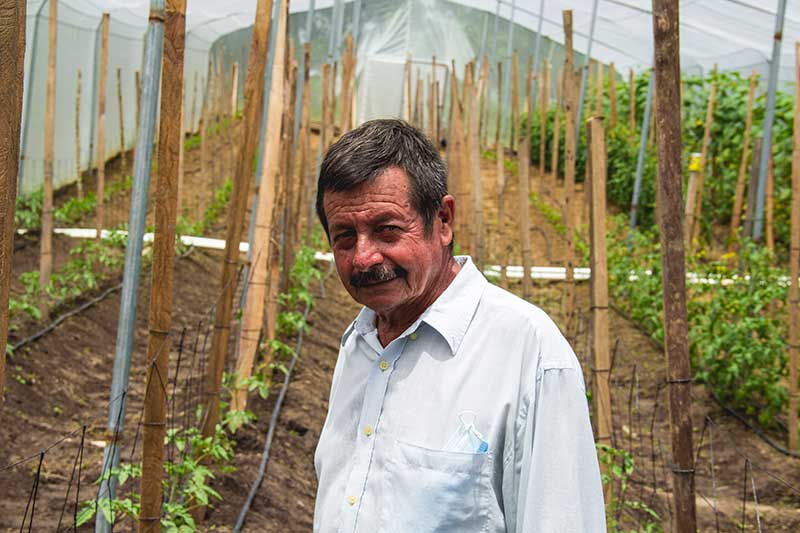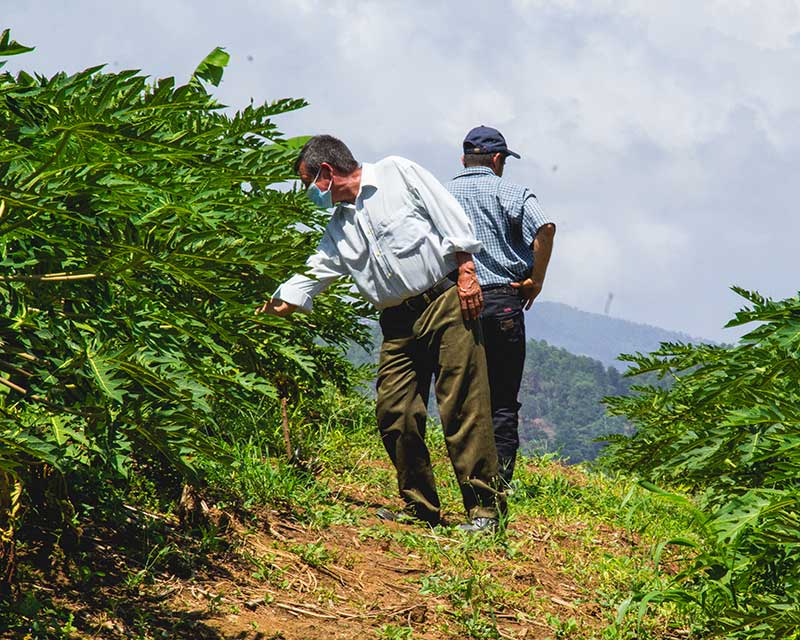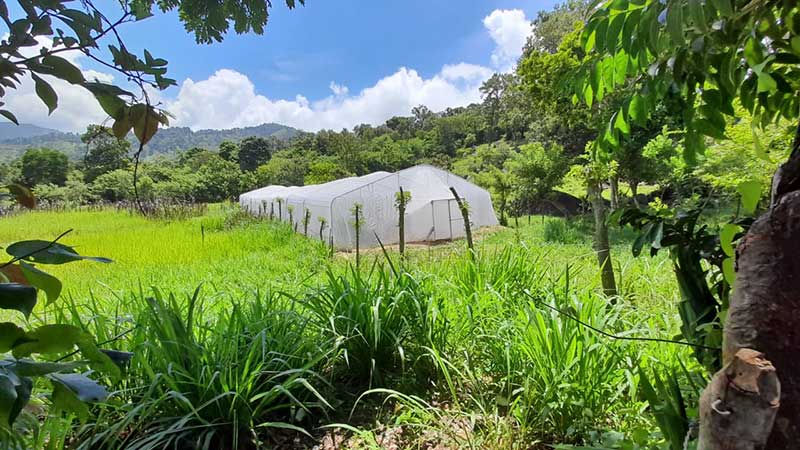We are no longer subsistence producers
The story for many small producers in the community of Laguna Verde, municipality of Azacualpa, Santa Barbara in Honduras, changed forever, thanks to a project to support the National School Feeding Program that included fresh food rations. Nutrition was strengthened for schoolchildren in educational centers, and also a window of opportunity was created for small producers in this area.

Project "Boosting the Productive Potential of School Feeding Program to Empower Small Producers."
Thanks to the strategic alliance of cooperation between Cargill, USAID, and World Food Programme (WFP) committed to achieving Zero Hunger in Honduras, this project benefited 6,600 children. The project received the support and commitment of local leaders such as the Mancomunidad del Valle de Quimistan (MAVAQUI) and the HIGUITO Municipal Council, as well as the local governments of the municipality of Azacualpa in Santa Barbara and Corquín Copán in Copán.
This project provided Pedro Zamora López and other producers in the community with reliable market access, offering them enough security to try producing products that they did not grow before. Pedro now grows tomatoes, cucumbers, ayotes, bananas, chili peppers and papaya.
Connecting small-scale farmers with WFP’s school meals programs builds sustainable supply chains by strengthening farmers’ capacity to access stable markets, improve agricultural productivity and increase their income potential.
“The project was a very important growth opportunity for the producers of Azacualpa, not only because they sold what they produced to the schools, but also because they improved their production and now even when the schools are closed because of the pandemic, they produce with quality and quantity and sell it in local markets,” said Natanael Sabillón, manager of the Commonwealth of the Quimistan Valley (MA-VAQUI).

With this program we helped strengthen local economies as smallholder farmers gained market access and training in order to supply school meal programs and other buyers.
”Now everything has changed. The project bought our product at a good price which allowed us to grow and generate job opportunities in our community," said very proud Mr. Ernau Lopez, a vegetable and fruit producer from Azacualpa, Santa Barbara.
Cargill has worked with World Food Program USA (WFP USA) and the United Nations World Food Programme (WFP) globally since 2001, providing more than US$20 million to improve access to safe, nutritious food for people in Africa, Central and South America and Asia.
This is another example of how Cargill lives its purpose of nourishing the world in a safe, responsible, and sustainable way by supporting local farmers and communities developing their own food system to build economic opportunity and feed their population.

